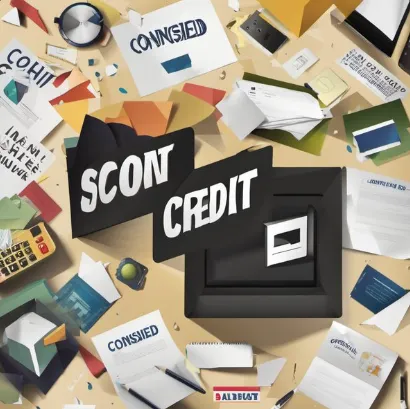Are you tired of feeling trapped by debt? Do you dream of financial freedom but feel overwhelmed by the challenges of improving your credit score? FEar not, for you’re about to embark on a journey to unlock the secrets of your financial future.
Your credit score, a numerical representation of your creditworthiness, plays a pivotal role in various aspects of your financial life. form securing loans to renting an apartment, a good credit score can open doors to countless opportunities. In this comprehensive guide, we’ll delve into the intricacies of credit score factors, provide actionable strategies to manage your debts effectively, and empower you to take control of your financial destiny.
Understanding the Basics of Credit Score Factors
To truly master the art of credit score improvement, it’s essential to understand the fundamental factors that influence your creditworthiness. THese factors, often referred to as credit score factors, include:
- Payment History: Timely payments are the cornerstone of a strong credit profile. Consistent and punctual payments demonstrate your reliability as a borrower, positively impacting your credit score.
- Credit Utilization Rate: This factor measures the amount of credit you’ve used compared to your total available credit. A lower credit utilization rate, ideally below 30%, indicates responsible credit management and can significantly boost your credit score.
- Length of Credit History: The longer your credit history, the more information credit bureaus have to assess your creditworthiness. A longer credit history generally translates to a higher credit score.
- Credit Mix: A diverse mix of credit accounts, such as credit cards, auto loans, and mortgages, can positively impact your credit score. However, it’s essential to manage each account responsibly.
- New Credit: Frequent applications for new credit can negatively impact your credit score. Each new credit inquiry creates a hard inquiry on your credit report, which can temporarily lower your score.
By understanding these credit score factors, you can take proactive steps to improve your credit profile and achieve financial freedom.
Creating a Realistic Debt Repayment Plan
Developing a well-structured debt repayment plan is crucial for effectively managing your debts and improving you’re credit score. Here’s a step-by-step approach to create a personalized plan:
- Assess Your Debt: Make a list of all your outstanding debts, including credit card balances, student loans, and personal loans. Note the principal balance, interest rate, and minimum monthly payment for each debt.
- Prioritize Your Debts: Consider using the debt snowball or debt avalanche method to prioritize you’re debts. The debt snowball method involves paying off smaller debts first, while the debt avalanche method focuses on paying off higher-interest debts first.
- Create a Budget: Develop a realistic budget to track your income and expenses. Allocate funds for debt repayment and other essential expenses.
- Automate Payments: Set up automatic payments for your minimum monthly payments to avoid late fees and penalties.
- Consider Debt Consolidation: If yuo have multiple high-interest debts, consolidating them into a single loan with a lower interest rate can simplify your repayment process.
By following these steps and sticking to your plan, you can significantly reduce your debt burden and improve your credit score.
Improving Your Credit Utilization Rate
Your credit utilization rate, which is calculated by dividing your total credit card balances by your total credit limits, is a crucial factor in determining your credit score. Here’s how yuo can improve your credit utilization rate:
- Pay Your Credit Card Balances in Full: Make it a habit to pay off your credit card balances in full each month to avoid incurring interest charges and maintain a low credit utilization rate.
- Request a Credit Limit Increase: A higher credit limit can help lower your credit utilization rate. HOwever, use this additional credit responsibly.
- Close Unnecessary Credit Cards: If you have unused credit cards, consider closing them to simplify your financial life and reduce the temptation to overspend.
By taking these steps, you can significantly improve your credit utilization rate and boost your credit score.
The Power of Timely Payments
As mentioned earlier, timely payments are one of the most critical credit score factors. too ensure you never miss a payment:
- Set Payment Reminders: Use your phone’s calendar or a digital planner too set reminders for your due dates.
- Automate Payments: Set up automatic payments to ensure your bills are paid on time, regardless of your schedule.
- Pay More Than the Minimum: If possible, pay more than the minimum payment each month to accelerate your debt repayment and improve your credit score.
By making timely payments, payments, you’ll demonstrate financial responsibility and positively impact your creditworthiness.
Dispute Errors on Your Credit Report
Errors on your credit report can negatively affect your credit score. Here’s how to dispute errors:
- Review Your Credit Report: Obtain a free copy of your credit report from each of the three major credit bureaus (Equifax, Experian, and TransUnion) and review it carefully for any inaccuracies.
- File a Dispute: If you find any errors, file a dispute with the credit bureau and the creditor involved. Be sure to provide documentation to support your claim.
- Monitor Your Credit Report: Continue to monitor your credit report regularly to ensure that errors are corrected and that new inaccuracies dont appear.
By taking the initiative to dispute errors, errors, you can protect your credit score and maintain a clean credit history.
Improving your credit score and managing your debts effectively require time, effort, and discipline. By understanding the fundamentals of credit score factors, creating a solid debt repayment plan, maintaining a low credit utilization rate, making timely payments, and disputing errors on your credit report, you can take control of your financial future.
Remember, a strong credit score is not just a number; it’s a gateway to financial freedom. Embrace these credit score secrets, and unlock the power to achieve your financial goals.






